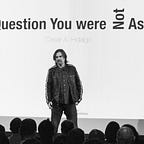What I learned the night of the election, and what I would like to see in the future
In life you either win or learn.
The 2016 U.S. election results were something that few people expected. In a few hours, polls, forecasts, and prediction markets were all proven wrong.
Nobody in my Facebook feed or my Twitter feed could believe what they were seeing. My feeds are of course, quite “blue.” I am a Hispanic liberal professor working at a research university in Massachusetts. Do I need to say more?
Yet, I am still wired to think like a scientist. So I understand that when the outcomes you observe are not the ones you expect, there is a lesson to be learned. But what are the lessons here?
The first one is quite obvious: the filter bubble is HUGE! I mean really HUGE!
Everyone that was surprised at tonight’s results was basically blinded to half of the country. Think about that.
The second lesson is that there must be something other than racism, xenophobia, and sexism fueling Trump’s election. Certainly, there are Trump supporters who support discrimination — like the KKK newspaper who endorsed Trump. But you don’t win an election on only that extreme vote. To win 270 electoral votes you need to get people that do not endorse such policies, and that maybe detest them, to show up and vote for you anyway. But who are these people? Who are Trump’s “moderates”?
One alternative, which may even resonate with some liberals, is that many Trump supporters were also making a compromise (like the Bernie Sanders supporters who voted for Clinton). These would be supporters that were not thrilled about Trump, but that would vote for him because he was the closest thing to a “reset” button they could find in this election.
So the second lesson is that this election may also be telling us that our institutional crisis, the crisis of how we govern ourselves rather than who governs us, is also reaching gargantuan proportions.
So if these are the lessons? What can we do about it?
Here are my two grains of sand. But before you read them, please remember that I am writing this at 11pm on the night of the election, so don’t be too mean if you think these ideas are not fully baked.
The first one is an easy ask to the people at Facebook, who is now a major source of information for so many people. Please, Mark and colleagues, give us a button to flip our feeds. A button that I can press, and see the opposite of what I would like. This should be relatively easy to do; because you already have ranked every post based on how likely I am to engage with them, or to like them, or by some sort of secret score that users don’t get to know. So just gives us a button to flip that feed so we can see what is outside our filter bubble. Of course, this is an idea that can be improved, because probably the opposite of what we are expected to like is not exactly what we need, but as a half-baked idea on the day of the election is a good place to get started. We can talk about the best algorithms to show you what you don’t know later.
The second idea is for future “third party” candidates. What I want to see from them is a new primary. That is, third party candidates should stop running independent campaigns and instead, run a “third” primary together. By creating a third primary together, third party candidates will attract way more media attention than each candidate can attract alone (it will be a highly non-linear effect). Maybe, over time, the winner of this third primary may become a presidential candidate that even gets invited to the final round of debates and has a real chance of being elected. Of course, this does not solve the institutional crisis, it just increases the possibilities that a third candidate would emerge. But this is the idea that I am willing to share for now.
So that’s what I learned on the night of the election. Of course, I’ll keep on thinking about. I also hope you learned something too.
